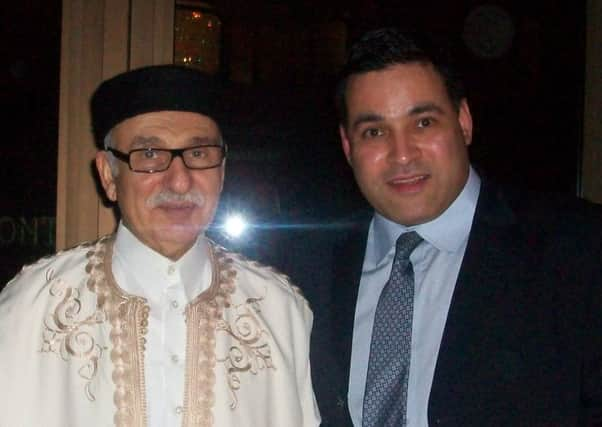Libya silent on '˜about turn' over compensation for IRA victims


It has also declined to comment on claims by a victims’ campaigner that a former ambassador to the UK pledged that his country would honour a signed agreement to compensate victims.
Libya supplied the IRA with 120 tonnes of weaponry, including Semtex, and victims of subsequent IRA bombings are seeking compensation, targeting £10bn of Libyan assets frozen in the UK by the UN.
Advertisement
Hide AdAdvertisement
Hide AdJonathan Ganesh, president of the Docklands Victims Association, is a survivor of the 1996 IRA Canary Wharf bomb, which used Libyan Semtex and left him with PTSD and a range of serious injuries.
Speaking to the News Letter, he said he feels deeply hurt that assurances he said were given to him by senior Libyan officials, including former ambassador to the UK his Excellency Mahmud Mohammed Nacua, are now apparently being broken.
In recent weeks the Libyan authorities have been increasingly vocal on the international stage in attacking a bill being progressed through the House of Commons by UUP peer Lord Empey, which aims to tap into the £10bn of Col Gaddafi-linked assets frozen in the UK by the UN.
Mr Ganesh said he had at least five meetings with Libyan officials about compensation from 2011 onwards. The meetings were eventually escalated to a meeting with his Excellency Mahmud Mohammed Nacua in the Intercontinental Hotel in London, he said, during which the pair were photographed (see above).
Advertisement
Hide AdAdvertisement
Hide AdMr Ganesh said: “Mr Nacua assured us of his support for the victims compensation Memorandum of Understanding signed in Benghazi, said we had been treated very unfairly and that his government was more than willing to address the legacies of the past.”
He said a range of Libyan officials promised to address the issue, including the chairman of the National Transitional Government of Libya Mustafa Abdul Jalil, who signed the Memorandum of Understanding drafted by UK victims’ lawyers in in Benghazi in 2011.
Mr Ganesh added: “We are now bewildered as to how the Libyan authorities can have paid substantial compensation to American, French and German victims of Gaddafi/IRA-sponsored terrorism but insist that they are not in any way liable for UK victims. We feel that the Libyan authorities owe us victims, MPs and the UK government a clear explanation.”
However, asked to comment by the News Letter, the Libyan embassy in London declined to address the issue of compnesation paid to US, French or German victims, verbal assurances from their ambassador or the signed memorandum.
Advertisement
Hide AdAdvertisement
Hide AdInstead, it supplied three statements. The first, from the Presidency council of the Government of National Accord, and first published in June, said “the file of the relationship of the former Libyan regime with the IRA has already been addressed between the two governments ... Libya has cooperated with the British government to close this file ... that was the base of great variable Libyan investments existed in Britain ...”.
In another statement, the Libyan Presidential Council said the Empey bill “will affect negatively the relations between the two countries”, while a statement from the Libyan House of Representatives said it “clearly announces to the whole world [the] rejection of any bill or agreement that leads to the infringement of Libyan funds”.
But Lord Empey said the “hysterical” reaction demonstrates that Libya does not grasp the weakness of its position. “They can’t get any of their assets unfrozen [at the UN] without UK support,” he said. “They should concentrate on a negotiated settlement rather than flailing about with bellicose statements.”
However, DUP MP Ian Paisley said Lord Empey’s bill would be against the law and argued MPs should instead lobby the UK government to compensate victims - and press Libya for financial recompense at a later date.
Advertisement
Hide AdAdvertisement
Hide AdAndrew Murrison, chair of the NI Affairs Committee, told the News Letter he is looking forward to Foreign Minister Alistair Burt updating the committee on the matter shortly.
“I very much hope that progress has been made,” he said.
:: In June, when the Libyan Presidency council of the Government of National Accord first claimed the issue of compensation for Libyan-IRA victims had been closed on the basis of Libyan investment in the UK, lawyers for the victims demanded that Tony Blair explain what they were talking about.